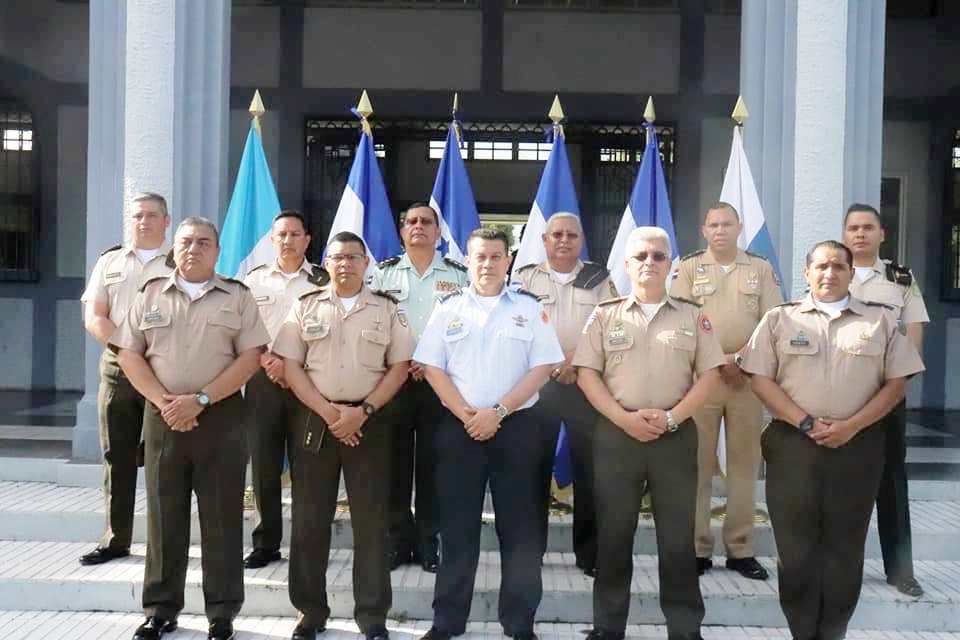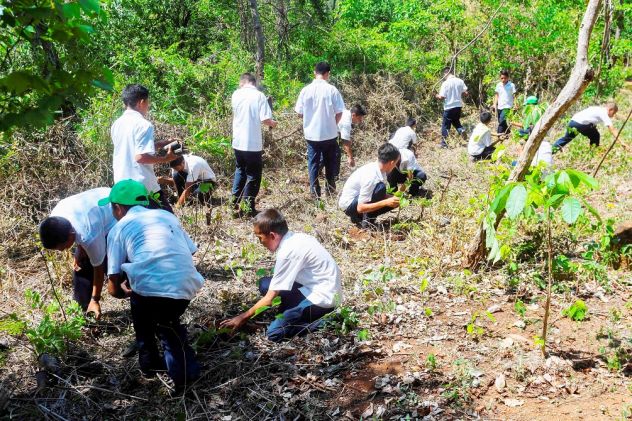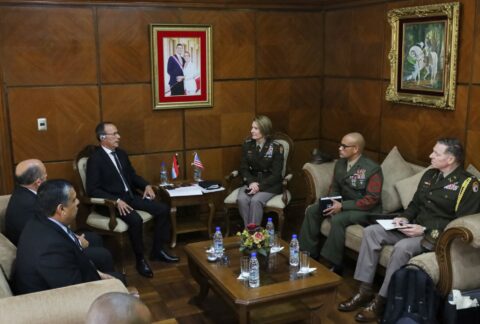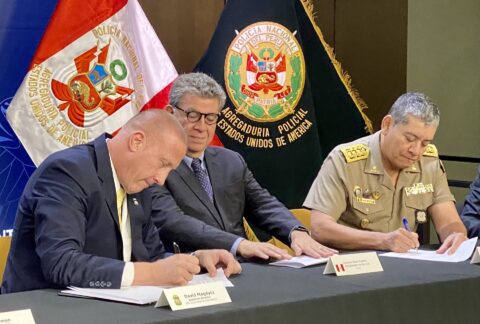Central American and Caribbean military officials agreed on measures to protect and preserve the environment and natural resources at the Central American Armed Forces- (CFAC, in Spanish) IX Specialized Environmental Meeting. The event took place at the Salvadoran Armed Force’s Military Doctrine and Education Command on July 1-4.
“The environment is a fundamental and strategic pillar for our Armed Force. Our responsibility is to protect it, strengthen it, and preserve it, because the well-being and health of our people, of the region, and of the world, depend on natural resources,” Salvadoran Air Force Colonel Enrique Alberto García Renderos, head of the 7th Group of the Salvadoran Armed Forces’ Joint Chiefs of Staff, told Diálogo.
According to Mongabay, a California-based nongovernmental organization (NGO) that reports about conservation and environmental sciences, activities financed by narcotrafficking cause deforestation. Over the last 15 years, cocaine has led to “narco-deforestation”, destroying 30 percent of the forests in Guatemala, Honduras, and Nicaragua. From 2001 to mid-2014, nearly 1 million acres of forest were cleared for agricultural land to launder illegal drug profits, the NGO indicated.
To counter the disaster, El Salvador planted 250,000 trees to reforest almost 1,483 acres from 2017 to 2019. “If we don’t take measures for conservation and the sustainable use of natural resources to support each country’s efforts, we will lose a high percentage of our biodiversity in a short time,” Col. García said.
At the meeting, high-ranking officers of the Dominican Republic, Guatemalan, Honduran, Nicaraguan, and Salvadoran armed forces started a strategic regional plan to create a unit specialized in the environment. The unit will enable the protection of forest areas and their reforestation, according to the laws of each State.
“It will also help us to provide an immediate and joint response to help extinguish forest fires and to follow up on combined common training that we can conduct to strengthen environmental management,” said Col. García.
Participants agreed to create a rescue, rehabilitation, and release center for wildlife; to work on cleaning cold-water bodies and lakes; to improve forest seed management in nurseries; and to set up forest plantations.
Service members also exchanged knowledge and experiences about the processes used by the air and naval observation program for natural disasters and forest fires, and learned about the work of the Nicaraguan Army’s Ecological Battalion to counter the threats posed by climate change.
“Central America is one of the regions most affected by climate change worldwide, which local environmental factors such as deforestation worsen,” Marcos Regis Da Silva, director of the Inter-American Institute for Global Change Research, told news agency EFE. Central America makes “exceptional efforts to adapt and mitigate the effects of climate change,” he added

In its report What Lies Beneath, the National Centre for Climate Restoration in Melbourne, Australia, describes climate change as an existential risk for humankind, involving great consequences that are negative and irreversible, such as population reduction at a global level, the massive extinction of species, economic disruption, and social collapse.
“Therefore, the armed forces have an important role in dealing with the consequences of climate change, because they contribute to developing response mechanisms as the occurrence of hurricanes, tornadoes, heat waves, and droughts increases,” Col. García said.
Latin American and Caribbean governments endorsed the proposal El Salvador and the countries of the Central American Integration System made to designate the 2021-2030 period as the United Nations Decade on Ecosystem Restoration, an initiative supported by the 192 countries that are part of the international organization.
“CFAC will continue in the fight to maintain biodiversity, ecosystems, and natural resources in the region, with new strategies and combined implementation programs promoting environmental conservation. We will also train our personnel so they can share this knowledge,” Col. García concluded.









